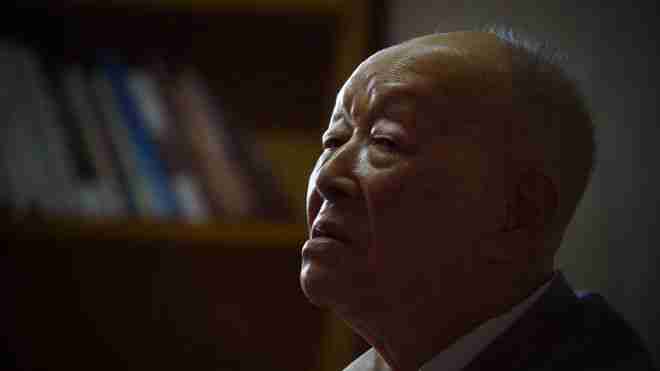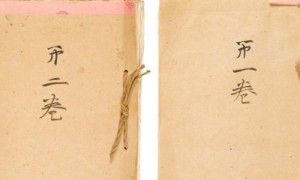导读:中国语言学家、汉语拼音之父周有光去世,享年111岁。

Mr Zhou and a Communist party committee spent three years developing the Pinyin system in the 1950s.
上个世纪50年代,周有光和一个党委会耗费三年的时间,建立起了拼音系统。
It changed the way the language was taught and helped raise literacy rates.
拼音系统改变了汉语教学方法、提高了识字率。
He died in Beijing on Saturday a day after his birthday, Chinese media reported.
据中国媒体报道,周有光于周六在北京去世,前一天刚刚度过自己111岁的生日。
As a young man Mr Zhou spent time in the US and worked as a Wall Street banker.
年轻时周有光旅居美国,是华尔街一名银行家。
He returned to China after the communist victory in 1949 and was put in charge of creating a new writing system using the Roman alphabet.
1949年共产党取得解放战争胜利之后周有光回到了中国,他被委派负责用罗马字符建立一个新的书写系统。
"We spent three years developing Pinyin. People made fun of us, joking that it had taken us a long time to deal with just 26 letters," he told the BBC in 2012.
周有光2012年对BBC说道:“我们用了三年时间创立了拼音。当时别人取笑我们,开玩笑说我们仅仅26个字母居然用了这么长时间。”
Before Pinyin was developed, 85% of Chinese people could not read, now almost all can.
在拼音之前,85%的中国人不识字,而现在文盲几乎不存在。
Pinyin has since become the most commonly used system globally, although some Chinese communities - particularly in Hong Kong and Taiwan - continue to use alternatives.
自那以来拼音已经成为了全球使用最广的书写系统,尽管一些中国人群体--特别是香港和台湾--仍然在使用其他书写手段。
It is also widely used to type Chinese characters on computers and smartphones, leading some to fear it could end up replacing Chinese characters altogether.
拼音也是电脑和手机上被广泛使用的一种汉语输入法,一些人甚至担心拼音最终会完全取代汉字。







